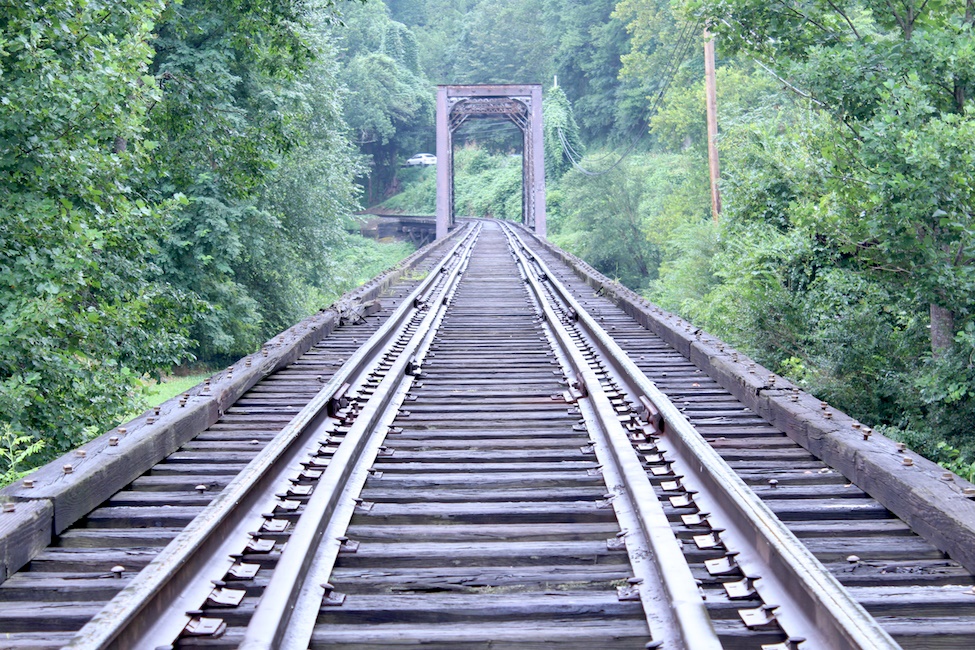New Way to Assess Safety of Aging Timber Railroad Bridges

There are about 100,000 railroad bridges in the U.S. and approximately 30,000 of them are constructed from timber. More than half of these timber bridges were built before 1920.
Evaluating the structural integrity of aging timber railroad bridges in Florida and the United States is imperative, especially in the aftermath of destruction from hurricanes Irma and Harvey this year. Researchers from the College of Engineering and Computer Science at Florida Atlantic University have developed a cutting-edge way to gauge the condition of timber railroad bridges, which are highly vulnerable to weather and other elements. They have received a National Academies of Sciences, Engineering and Medicine $100,000 “IDEA” award for railroad safety for a two-year project. FAU and the University of Illinois at Urbana-Champaign will initially start the project in collaboration with CSX Transportation, based in Jacksonville, to test their technology on bridges owned by CSX.
The Rail Safety IDEA program is sponsored by the U.S. Department of Transportation Federal Railroad Administration (FRA) and provides funding for projects that promote innovative approaches to improving railroad safety or performance. There are about 100,000 railroad bridges in the U.S. and approximately 30,000 of them are constructed from timber. More than half of these timber bridges were built before 1920. The FRA now mandates North American railroad bridge owners to closely assess the structural capacity of their bridges. Consequently, in order to comply, railroad companies need new and effective ways to help them improve and develop bridge safety.
“There are several timber bridges that are more than 100 years old and are still in service. Most of them have lasted well beyond their life expectancy considering that they were designed to handle much heavier trains than those in service today,” said Sudhagar Nagarajan, Ph.D., principal investigator of the grant and an assistant professor in FAU’s Department of Civil, Environmental and Geomatics Engineering, who is collaborating with co-PIs Madasamy Arockiasamy, Ph.D., a professor in FAU’s Department of Civil, Environmental and Geomatics Engineering, and Bill Spencer, Jr., Ph.D., a professor in the Department of Civil and Environmental Engineering at the University of Illinois at Urbana-Champaign. “We need to monitor the condition of these timber bridges regularly in order to prevent any structural failures and damages.”
Currently, there are a number of techniques available to monitor the condition of bridges in relation to loads. However, these methods require installing mechanical devices and targets or reference points on the bridge and are not ideal because of safety concerns due to temporarily stopping traffic as well as requiring high manual labor. While there also are non-contact methods available to test structural integrity such as laser Doppler, they, too, are not without limitations.
Nagarajan and his collaborators have developed an innovative remote sensing technique that uses both Terrestrial Laser Scanning (TLS), which extracts 3D topography of bridge structures without making any contacts to the bridge, and photogrammetry, an image-based technique used for monitoring structural deformations. This technology is the first to measure displacements in lateral and vertical directions under traffic to aid in quantifying the condition of the bridges based on metrics rather than simply on visual observation or just using images from photogrammetry.
According to the American Railway Engineering and Maintenance-of-Way Association Manual for Railway Engineering, timber trestle railroad bridges are currently designed for lateral forces due to wind on the structure. The new method developed at FAU will simulate numerical modeling and examine the structural adequacy of timber trestle bridges against wind pressures and wind loads, corresponding to different hurricane categories.
“The approach that we have developed is completely non-contact, low-cost as well as reliable,” said Arockiasamy. “We believe that our method can be implemented on all railroad bridges including timber, steel and masonry.”
After successful completion of this project, the researchers will share the results from the study through a series of free webinars available to the railroad structural engineering community for transfer-of-knowledge. They also will provide prototype software and best practices procedures to all railroad agencies to help them to identify their railroad bridges that need repair or reconstruction.
“This project spearheaded by researchers at Florida Atlantic University in collaboration with the University of Illinois at Urbana-Champaign and CSX Transportation is being launched at a critical time in our state and nation’s history,” said Stella N. Batalama, Ph.D., dean of FAU’s College of Engineering and Computer Science. “We are grateful for receiving this important grant from the National Academies of Science, Engineering and Medicine, which will help to ensure the safety of railroad transportation to continue to move both people and goods during severe as well as normal weather conditions.”
“Rail Safety Week,” a collaborative awareness campaign drawing participants from Class I railroads, the U.S. Department of Transportation, first responders and more, runs through Sept. 30.
-FAU-
Tags: research | faculty and staff | science | engineering | technology